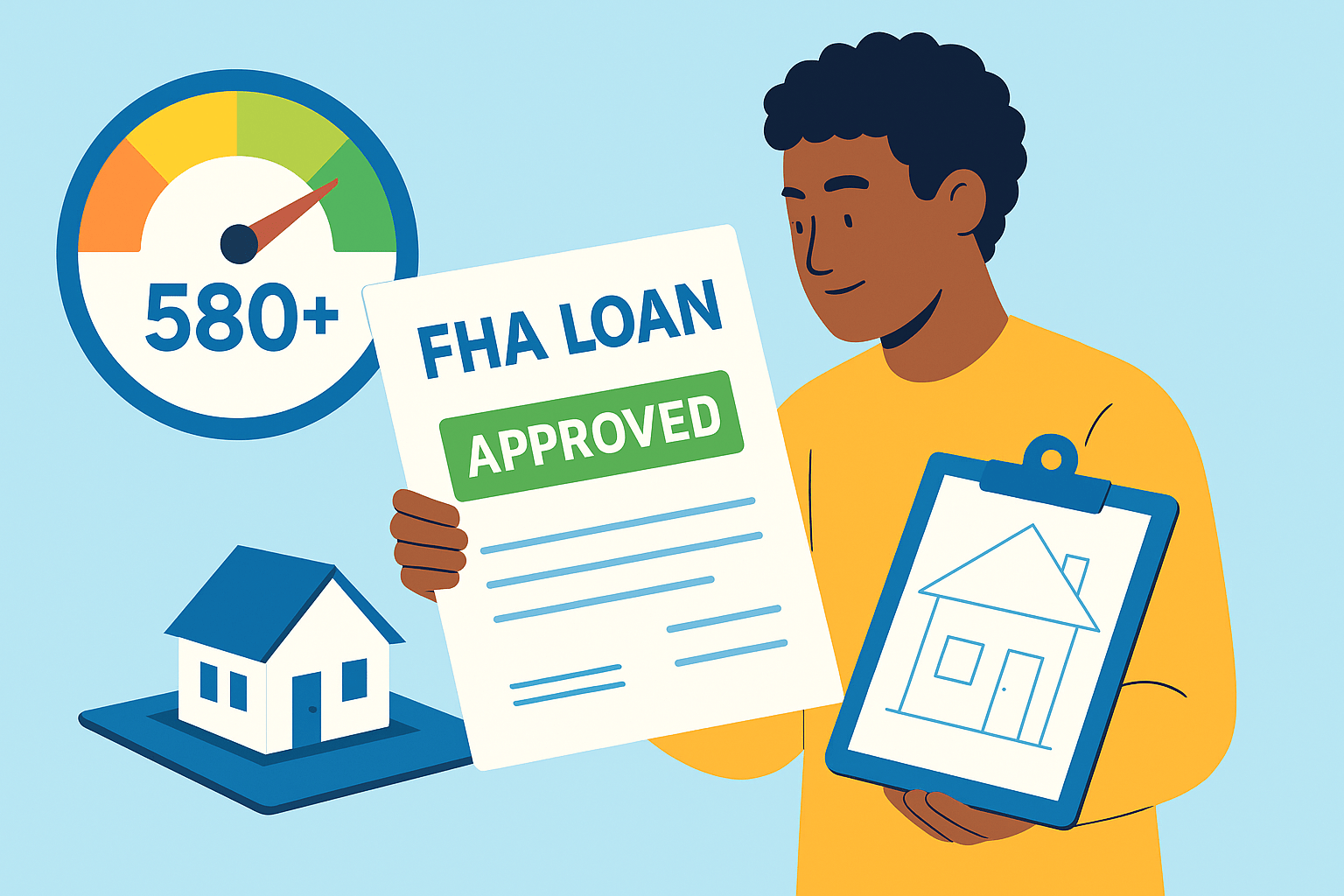MOVE Mortgage Credit Certificate First-Time Homebuyer Assistance Programs
MOVE Mortgage Credit Certificate: Vermont’s Hidden Tax Break for First-Time Homebuyers
Buying a starter home in Vermont can feel like hiking the Long Trail—exciting yet steep. The MOVE Mortgage Credit Certificate (MOVE MCC) flattens that climb by shaving dollars off your federal income taxes every single year you keep your mortgage. In this guide, you’ll learn how the program works, who qualifies, and how much you could save.
What Is the MOVE Mortgage Credit Certificate?
The MOVE Mortgage Credit Certificate is a federal tax credit administered locally by the Vermont Housing Finance Agency (VHFA). Instead of a one-time benefit, the certificate converts a slice of your annual mortgage interest into a direct credit against your IRS bill. That means real cash stays in your wallet—money you can funnel back into furniture, maintenance, or even extra principal payments.
- Applies only to first-time homebuyers (or those purchasing in targeted areas).
- Credit rate: up to 30% of annual mortgage interest (capped at $2,000 per year when paired with VHFA financing).
- Lasts for the entire life of the original mortgage, not just the first year.
How Does the MOVE Mortgage Credit Certificate Work?
Think of the MCC as a long-term coupon you clip once but redeem over and over. After closing, VHFA issues the certificate and your lender provides Form 8329 annually. You then claim the credit on your 1040. If you owe the IRS $3,600 and your MCC is worth $2,000, your bill plunges to $1,600. The difference isn’t a deduction—it’s an actual dollar-for-dollar credit.
Key mechanics:
- The credit reduces your income tax liability; any remaining interest may still be deducted.
- If your credit exceeds your liability this year, you can carry the unused portion forward for up to three years.
- Refinancing? You can often re-issue the certificate, preserving the tax benefit.
Who Qualifies for a MOVE MCC in Vermont?
Eligibility focuses on helping moderate-income residents stake their claim in the Green Mountain State. General guidelines include:
- First-time buyer status: You haven’t owned a principal residence in the past three years (exceptions for federally targeted areas and qualified veterans).
- Purchase price limits: Vary by county—for example, $381,308 in Chittenden, Franklin, and Grand Isle as of 2024.
- Income caps: Also county-dependent; two-person households in Washington County, for instance, must earn below ~$113,000.
- Property must be your primary residence within 60 days of closing.
- Single-family homes, condos, and some multi-family properties (up to four units if you occupy one) may qualify.
Because numbers change annually, confirm current limits on VHFA’s website.
How Much Can You Save? Real Numbers & Scenarios
Let’s crunch a few Vermont-specific examples to illustrate potential savings:
-
Burlington condo buyer
Purchase price: $325,000
Mortgage: $292,500 at 6.25%
First-year interest: ≈$18,250
MCC credit at 30%: $5,475
Tax credit capped at $2,000 (VHFA financing), leaving $3,475 as a standard deduction. -
Bennington ranch buyer
Purchase price: $225,000
Mortgage: $202,500 at 6.5%
First-year interest: ≈$13,162
MCC credit at 30%: $3,949 (still capped at $2,000).
Over five years, cumulative credits can hit $10,000, depending on rates.
Even under the $2,000 cap, recurring credits can offset closing costs within three tax cycles, effectively paying you back for using the program.
Pairing the MOVE MCC with Other Vermont Homebuyer Programs
One frequent question is whether the MOVE Mortgage Credit Certificate plays nicely with other assistance. The answer: absolutely. Many borrowers layer it with:
- VHFA MOVE mortgage loans: Receive competitive fixed rates plus down-payment help up to $15,000 (interest-free for the first 20 years).
- USDA Rural Development 502 loans: Zero-down financing for rural properties.
- Local municipal grants: Burlington’s down-payment assistance, for example, offers $10,000 forgivable after five years.
Combined, these benefits can widen your buying budget by tens of thousands without increasing monthly obligations. Always notify each program administrator to avoid stacking rules conflicts.
Step-by-Step Guide to Claiming Your Tax Credit
- Apply with an approved lender. VHFA publishes a statewide list; shop for both rate and service.
- Complete the MCC paperwork before or at closing. Expect a one-time fee of $800, usually rolled into settlement costs.
- Store your certificate safely. You’ll need its number for Form 8396 each tax season.
- Receive your annual mortgage interest statement (Form 1098) in January.
- File Form 8396 with your federal return, subtracting the credit from your tax owed.
- Carry forward any unused credit up to three years—don’t leave free money on the table.
Beyond the Numbers: Why an MCC Boosts Buying Power
Lower taxes equal higher net income in the eyes of many mortgage underwriters. Some lenders will “gross up” the expected credit and add it to your qualifying income, letting you borrow more while staying within debt-to-income guidelines. An additional $2,000 in annual credits can translate into roughly $17,000 in extra purchasing power at today’s rates.
Need a story? Meet Emily and Jake from Rutland. They’d saved $9,000—enough for closing costs but not the down payment lenders wanted. By combining VHFA’s $15,000 down-payment loan with the MOVE MCC, they squeezed their monthly payments below what they had paid in rent. Last April, Jake sent a photo of their new lilac bushes, captioned “Blooming equity.” This creative cocktail of aid turned renters into owners without maxing credit cards.
Common Mistakes to Avoid
- Missing the filing deadline. An MCC is worthless if you forget Form 8396; set a calendar reminder.
- Selling too soon. If you dispose of the home or convert it to rental within nine years, a portion of credits claimed may trigger recapture tax. Your lender will provide a disclosure—read it closely.
- Refinancing without re-issuance. Skipping this step forfeits future credits. Ask your lender about the streamlined process.
- Overlooking Carry-Forwards. If your credit exceeds liability, track the unused balance—many filers forget and lose hundreds.
FAQ
- Can I use the MOVE MCC with an FHA loan?
- Yes. FHA, USDA, and conventional loans are all eligible as long as they meet VHFA guidelines.
- Is the credit refundable?
- No. It reduces your liability to zero but will not create a refund beyond taxes owed.
- Do income limits adjust for household size?
- Absolutely. Limits rise for three-plus person households; consult current VHFA charts.
- What happens if I move out but keep the house?
- Once the property stops being your primary residence, the credit ends and recapture rules may apply.
- How long does the certificate last?
- For the life of the original mortgage, up to 30 years, unless you refinance without re-issuance.
Ready to Turn Taxes into Keys?
Every spring, Vermonters trade ski poles for shovels—and renters trade rent checks for mortgage statements. The MOVE Mortgage Credit Certificate can make that leap easier by trimming your federal tax bill year after year. Visit VHFA’s official MCC page or connect with a VHFA-approved lender to start the application. Your future porch swing is waiting.
Explore More Blog Posts
Checkout more similar posts those will help you to choose better property.












 Profile
Profile Password
Password Saved Properties
Saved Properties Sign Out
Sign Out
 +0.01
+0.01
 -0.15
-0.15

